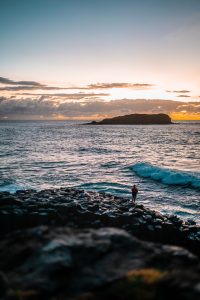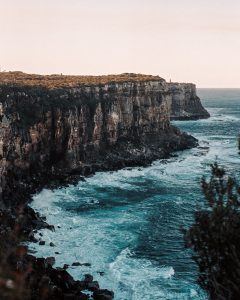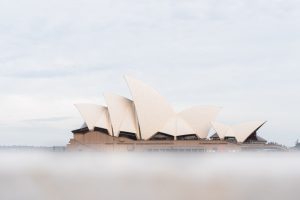The Great Ocean Road, stretching 243 km from Torquay to Allansford in south-west Victoria, offers stunning views of the Southern Ocean and numerous beaches.
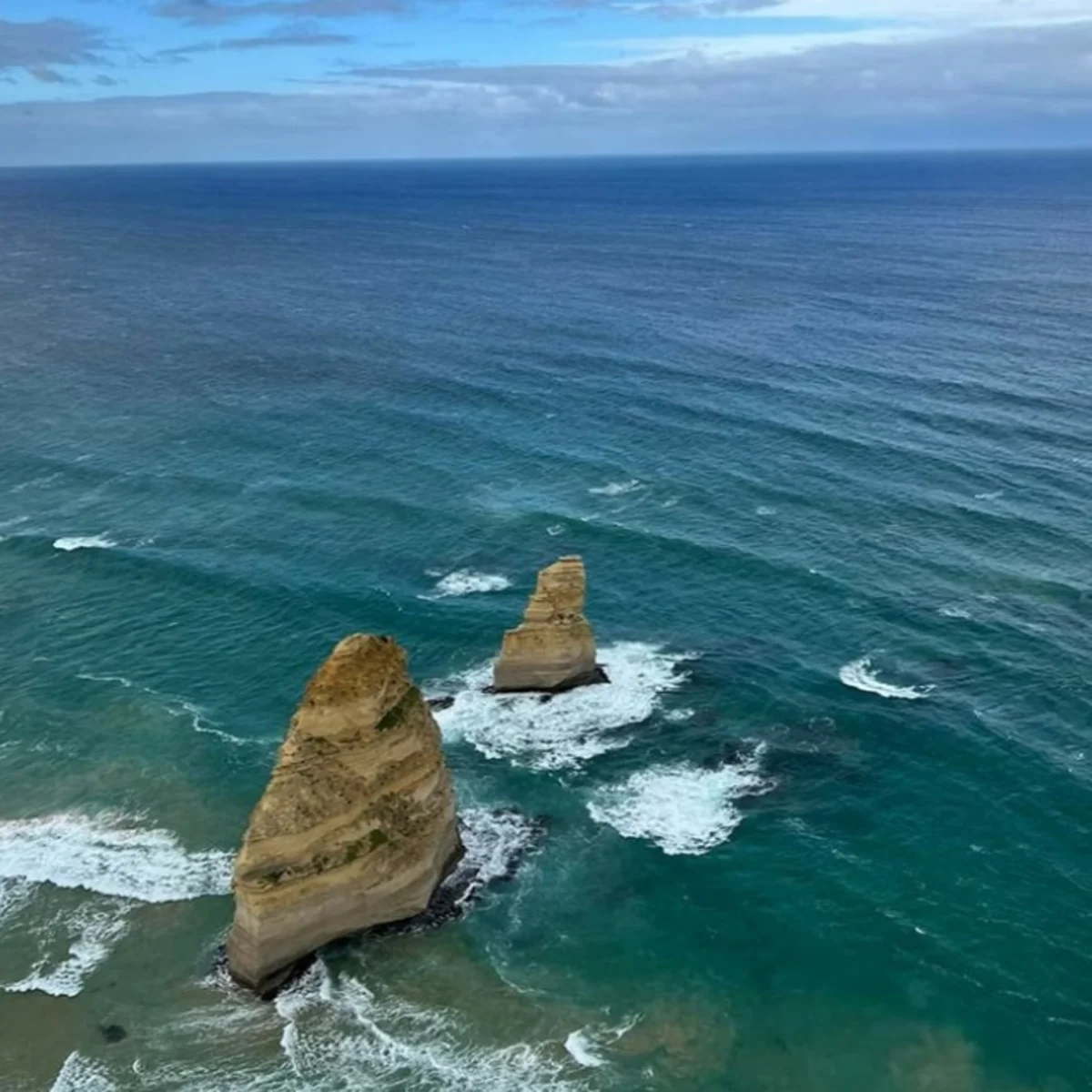
Beaches & coastal attractions
Australia is known for its beautiful beaches, with Great Ocean Road beaches being top-rated for sunbathing, surfing, and leisurely walks. Tourists visit throughout the year to enjoy the stunning views of the ocean and sand.
Great Ocean Road beaches are known for their excellent surfing conditions, making them popular travel destinations. Whether on a planned trip or spontaneously visiting, you’ll enjoy the beauty of these beaches along the Great Ocean Road.
You can drive the Great Ocean Road on your own and stop off at as many beaches as you like, or come on fantastic Great Ocean Road Tour trips with us so that you can join and enjoy travelling from Melbourne.
Top beaches along the Great Ocean Road
The Great Ocean Road is home to several beautiful beaches popular among visitors.
Bells Beach
Bells Beach is a well-known destination for surfers and travellers along the Great Ocean Road. Visitors can relax on the sand, take in the views from lookout platforms, and surf in the area.
Bells Beach is famous among surfers because of its point break. The right-hand break occurs in various places along the reef, including Centerside, Rincon, Outside Bells, and Bells’ Bowl. The Rip Curl Surf Pro is held annually on the Great Ocean Road beach.
Bells Beach is a great fishing spot, especially during low tide when it’s easy to fish from the reefs at both ends of the beach. It is considered one of the best beaches in Torquay.
Torquay Front Beach
Torquay, a popular stopover on the Great Ocean Road, is known for its beaches that attract many tourists. Ideal for surfers, the beaches have strong currents against the rocks and a prominent southern rip known as the ‘Escalator’.
Swim safely in the patrolled areas of the beach near Zeally Bay. Avoid rocks and strong rips, particularly around Point Danger. Enjoy fishing or exploring rockpools, or take a relaxing walk along the coast. Torquay town is situated directly behind the beach.
Lorne Main Beach
Lorne Main Beach, situated north of Apollo Bay, is a family-friendly spot along the Great Ocean Road. It offers various facilities and is sheltered, making it ideal for swimming, boating, and water sports. It is also the only beach with lifeguards on duty during the summer months, ensuring safety for visitors.
Lorne Main Beach offers a variety of activities for families, including sand and water activities, surrounded by gum trees and picnic areas. The nearby town centre of Lorne provides cafes, restaurants, and shops for a break from the sun.
Fairhaven Beach
Fairhaven Beach, located just 30 minutes west of Airey Inlet, is a picturesque 6 km long beach known for its excellent surfing conditions, especially at the eastern end near the Surf Life Saving Club.
The waves in the area average 1.5m and are combined with medium grain sand, creating a 200m wide surf zone with 2 bars. Surfing spots popular with most surfers include Moggs Creek, The Spot (south of Fairhaven Surf Lifesaving Club), and Spouts Creek.
Fairhaven Beach is a good choice for those who prefer less crowded spots. Visitors can relax on the sand and soak up the sun all day. Swimming is possible at Fairhaven, but staying in the patrolled area in front of the Surf Lifesaving Club is advised due to strong rips.
Johanna Beach
Discover the stunning Johanna Beach, a hidden gem nestled along the Great Ocean Road, near Glenaire and just west of Apollo Bay. The area features camping and fishing and is a popular surf spot. With 3.6 km of shoreline, it is considered one of the top surf beaches along the Great Ocean Road.
The stretch of beach breaks is known for its rapid jumps in size and is best suited for experienced surfers. It is important to note that this beach is unpatrolled.
There are multiple viewing areas overlooking the beach, grassy slopes with picnic areas, and opportunities for fishing, particularly for salmon. Johanna Beach government-run campground offers 25 sites for camping.
Gibson Steps
Gibson Steps is a well-known stop for travellers on the Great Ocean Road, offering sweeping views from a 70-meter-high vertical clifftop lookout overlooking the beach. Visitors can park at the Gibson Steps car park or take a 1-kilometer walk from the 12 Apostles via a connecting path.
Visitors can access the beach via 86 steps and enjoy sunbathing or a stroll, taking in sight of the towering limestone sea stacks known as Gog and Magog. Fishing is popular, but swimming is not recommended due to solid reefs and rip holes.
Loch Ard Gorge Beach
Loch Ard Gorge Beach, located along Great Ocean Road in regional Victoria, is named after a famous shipwreck. The beach, part of the Port Campbell National Park, features towering limestone cliffs and stunning rusty-coloured sand, making it a must-see.
Visitors have the opportunity to walk along the cove and explore various short walks in the area, including a cemetery where less fortunate shipmates were laid to rest. Swimming is not advised, even on calm days, due to treacherous currents and unforgiving rocks.
During the evening hours from October to April, Short-tailed Shearwaters return to their burrows at Mutton Bird Island. It is recommended that you witness this amazing sight if you are in the vicinity.
Port Campbell Beach
Port Campbell Beach is a popular attraction along the Great Ocean Road. It is 150 meters long and is known for being one of the few swimmable beaches in the area. The beach is relatively safe with low waves, but it is important to swim between the flags and heed any patrolled regions due to the deep water close to the shore.
Surfing is available, with rideable waves off the eastern point during big swells.
The green foreshore allows dogs but is not permitted on the beach. It is a popular spot for grabbing a takeaway lunch or enjoying a day under the sun.
Childers Cove Beach
Childers Cove is a secluded beach along the Great Ocean Road that tourists often overlook due to its remote location, but it is worth a visit.
To reach the destination, take the Great Ocean Road approximately 15 km west of the Bay of Islands until reaching the turn off onto Childers Cove Road. Proceed for the next 7 km through open farmland to arrive at the destination.
The area offers a beautiful cove, sandstone stacks, and colourful limestone cliffs for visitors to enjoy. Activities such as walking sandy pathways, swimming, and fishing are available. While swimming is usually safe, visitors are advised to avoid certain areas.
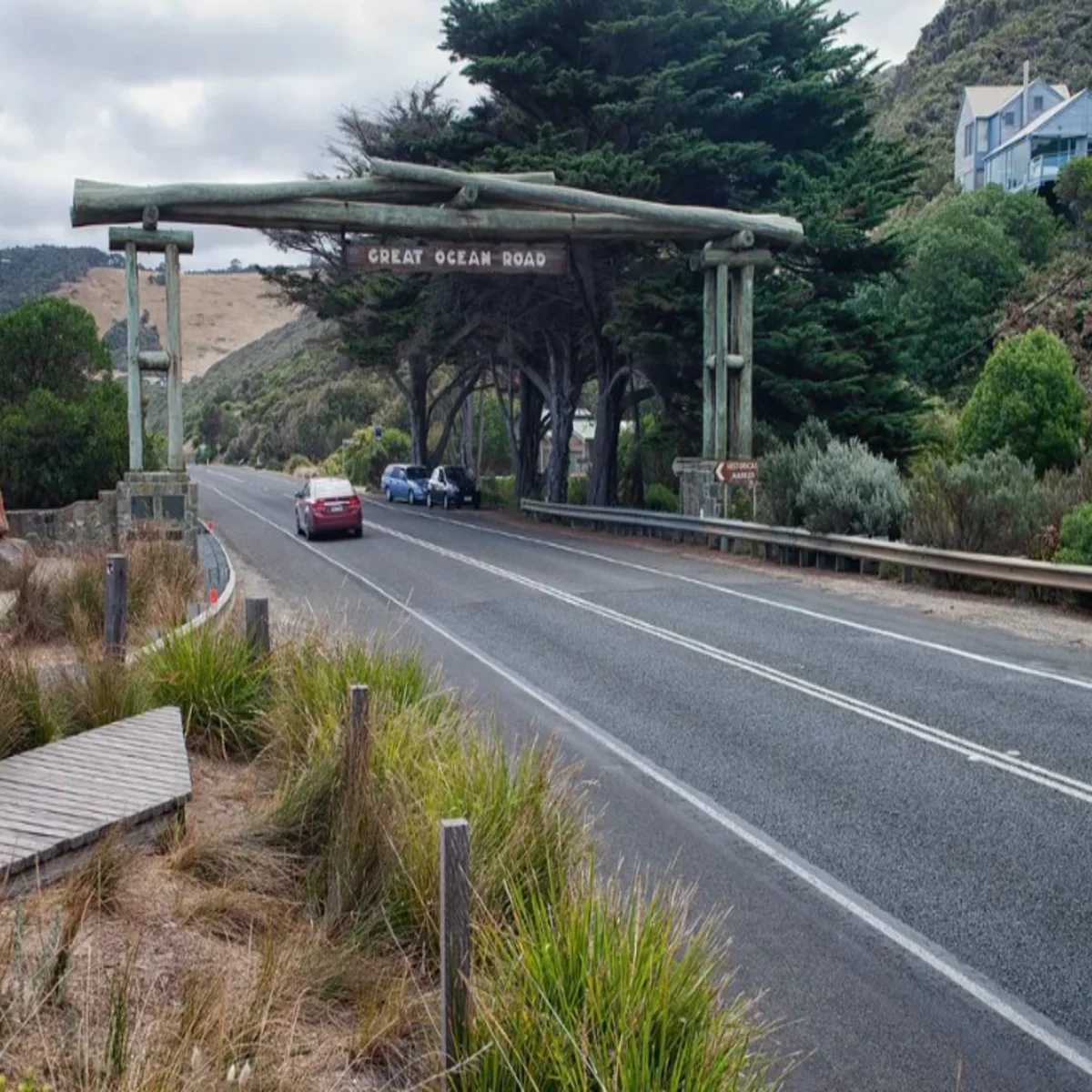
Logans Beach
Logans Beach Bay is one of the best beaches on the Great Ocean Road for those interested in spotting sea life, particularly Southern Right whales who return to the bay to calve between June and September.
Whales can be seen swimming near the shore at Logans Beach, offering spectators great views from the viewing platform and the sand below. Surfing is popular, but swimming in the ocean is not recommended due to safety concerns. Logans Beach is one of the best beaches along the Great Ocean Road for wildlife spotting.



